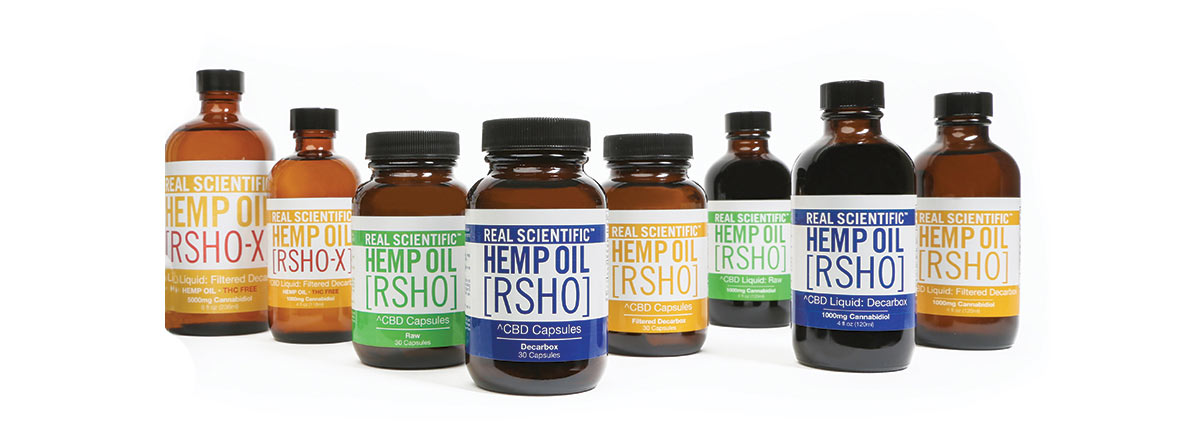What Nutrients are in CBD Oil?
While it’s the CBD content in hemp-derived CBD oil often gets most of the shine, the product also provides nutrients that can help ensure your body runs at its best.
It’s likely that it’s the cannabidiol (CBD) in hemp-derived CBD products that initially compelled you to consider adding them into your health routine, but did you know that hemp oil also contains an array of dietary nutrients?
Made from the stalks of high-CBD varieties of hemp, CBD oil is an ideal source of dietary nutrients that support a healthy and complete diet. Many of the nutrients you get with daily CBD oil servings are crucial for your body and mind to be able to perform at their best.
Here’s a look at what nutrients your body will obtain with CBD oil servings, and how CBD oil products complement your healthy lifestyle.
Dietary Nutrients in CBD Oil
Full-spectrum CBD oil refers to pure hemp oil that features all the same cannabinoids and other compounds that are present in the original hemp plant. Hemp contains many dietary nutrients that are not sufficient in most diets today.
Protein: Protein is necessary for the structure, function, and regulation of your body’s tissues and organs. Considered a complete protein source, hemp provides all 20 amino acids, including the 9 essential amino acids your body is unable to make on its own.
Fiber: Critical to the health of your digestive system, fiber has been shown to lower cholesterol and improve blood sugar levels. A high-fiber diet may also reduce the risk of colon cancer.
Essential fatty acids: Full-spectrum CBD oil is an ideal source of both Omega 3 and Omega 6. Omega 3 acids play a role in making the hormones that regulate inflammation and the contraction and relaxation of your arteries. They also lower triglyceride levels in the blood to cut down your risk of suffering from heart disease and stroke.
Most people consume too much Omega 6 compared to Omega 6. Hemp oil, however, has the optimal 3:1 ratio of Omega 3 to Omega 6 acids to reduce the negative effects of high-fat foods.

We’re not done! Full-spectrum hemp CBD oil also contains these vitamins and minerals:
Vitamin A: Vitamin A is a critical player in the growth and development of your heart, lungs, kidneys, and other organs. It’s also important for maintaining good vision and a well-running immune system. It’s also a powerful antioxidant, so it’ll help protect cells from the damage of free radicals.
Vitamin C: Humans have to get vitamin C from an outside source because we’re unable to synthesize it on our own. Vitamin C is an important antioxidant. It is also important for the formation of collagen and supports immune function.
Vitamin E: Vitamin E is actually the collective name for a group of compounds known for their powerful antioxidant properties. It has also been shown as beneficial for helping prevent various types of cancers.
B Complex Vitamins: Full-spectrum CBD oil contains Vitamins B1 (Thiamine), B2 (Riboflavin), B3 (Niacin), B6, and B12.
- Vitamin B1, or Thiamine, can boost your immune system and is used for treating digestive problems like ongoing diarrhea and ulcerative colitis.
- Vitamin B2, more commonly known as Riboflavin, works alongside the other B vitamins to create red blood cells. Evidence has also shown it’s useful for managing migraines, blood disorders, and some eye conditions.
- Vitamin B3, or Niacin, helps your body produce sex and stress-related hormones. It also can be beneficial for helping address high cholesterol, heart disease, and diabetes.
- The versatile Vitamin B6 performs multiple functions in the body and is thought to be involved in more than 100 enzyme reactions. It also helps produce various neurotransmitters, including those tasked with regulating mood and the body’s natural clock.
Iron: An essential element for blood production, iron helps ensure the efficient transfer of oxygen from the lungs to your working tissues.
Beta Carotene: A natural precursor to Vitamin A, beta carotene may be beneficial for the slowing of macular degeneration and preventing metabolic syndrome.
Zinc: Crucial for the body’s immune system to work correctly, zinc has been linked to a lower risk of catching a cold.
Potassium: Potassium is a key nutrient for ensuring that your nerves and muscles can communicate properly. It’s also been linked to a reduced risk of high blood pressure, heart disease, and stroke.
Calcium: Well-recognized calcium is best known for improving the strength of bones and teeth and reducing the risk of osteoporosis. It is also is important for cell signaling and may help regulate body weight.
Selenium: Commonly taken as a supplement because of its antioxidant properties, selenium appears only in trace amounts in foods.
Phosphorus: While known best for keeping bone and teeth strong, phosphorus also helps manage the storing and use of energy.
Manganese: Often given to patients with osteoporosis and anemia, manganese plays an important role in the production of bones and connective tissue, metabolism, and the regulation of blood sugar levels.
Magnesium: Magnesium has shown to reduce the type of inflammation linked to heart disease and diabetes. It may also be beneficial for treating migraine headaches and osteoporosis.
Flavonoids: Flavonoids are a group of plant metabolites that are believed to provide antioxidant effects and benefit your body’s cell signaling pathways. Evidence also suggests that flavonoids are anti-viral, anti-cancer, and anti-inflammatory. They may also prevent heart disease and stroke.
Terpenes and Terpenoids: Known for creating the smell and flavor of cannabis, terpenoids have been found to be antioxidants. They’ve also exhibited anti-inflammatory effects.




